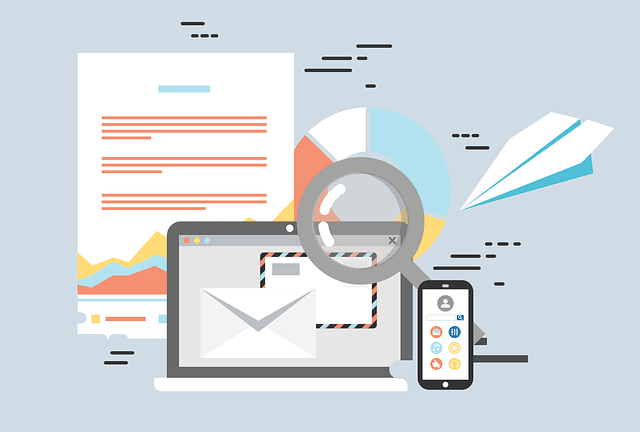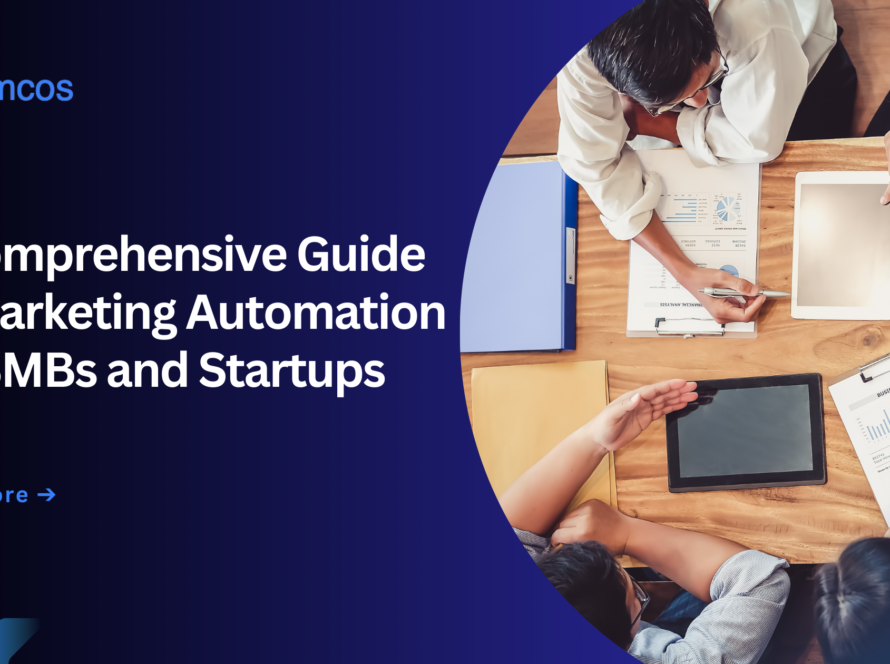In today’s competitive and ever-changing digital business era, businessmen are seeking a way to keep their business ahead of this evolving curve. With a modernization in technology, marketers now get in touch with a number of tools and software which help them to work more smartly, smoothly and efficiently. So, the rise of automation in the marketing process has proved to be a driving force to automate the marketing tasks.
Marketing Automation is defined as a set of tools and technologies that helps in improving the overall efficiency of marketing activities by automating the repetitive tasks such as managing social media posts, sending emails, monitoring customer interactions, data analysis etc. which helps in streamlining the marketing operations. This helps the marketers to save time and lay more focus on the core areas of marketing which requires more strategic thinking.
Table of Contents

Benefits of Marketing Automation
a) Improved Efficiency
It improves efficiency in automating frequently recurring tasks, making marketers save time and effort. It makes complicated processes like running an email campaign, posting on social media and customer segmentation easier while also enabling businesses to scale marketing activities. Because more people are reached without putting a workload burden on the workers, focus is again made on strategy and creativity within the marketing teams to improve the general productivity and effectiveness of the workforce.
b) Scalability & Growth
Effective management of interaction with multiple customers simultaneously through marketing automation ensures scalability and growth of marketing. This simplifies daily business operations to meet the growing customer demands without affecting any performance. Expanding reach, maintaining operational efficiency and focusing more on long-term growth is done due to automation of key marketing tasks, which provides a more personalized experience to a larger audience.
c) Better Customer Engagement
Marketing automation means customized interactions with the customer and these solutions are delivered at the appropriate time the customer needs them. This, therefore, increases the satisfaction of the customer since his or her communication happens in the right time and is relevant to him. By automating communication with a personalized touch, there is a bond created between customers and businesses, which increases loyalty and gets an attentive audience.
d) Better ROI
Marketing automation will boost ROI because it automates routine tasks, thus saving both time and resource. Such efficiency builds productivity as marketers do more with less effort. Business streamline processes, lessen manual labor, optimize resource allocation, generate better results and reinvest the time and money saved into further growth, hence better profitability.
e) Lead Generation
Marketing automation makes lead generation simpler. It really efficiently handles and manages leads that otherwise would take a long period of time. It nurtures the leads by trust building because a consistent, personalized communication stream ensures that leads engage with the company better and enjoy better conversations over time, resulting in leads transitioning well through a sales funnel into loyal customers with minimal human intervention.

How to ensure successful Marketing Automation?
So, there are some practices/steps which must be kept in mind in order to have successful marketing automation. These are :
a) Defining Goals & Objectives
Defining clear objectives will outline any need for an organization. If aiming toward lead generation, customer engagement, or indeed increasing sales leads, marketing automation aids toward achieving these objectives with efficiency. Automating certain tasks, tracking performance and developing personalized strategies all serve to streamline the business efforts while being able to monitor and gauge progress toward defined objectives.
b) Dividing Audience into Smaller Groups
Divide the target audience into smaller, segmented groups based on their preferences. Businesses share relevant and personalized messages with each group by tailoring content to specific segments. This approach implies that the audience will have higher satisfaction and better marketing outcomes because the audience receives content in accordance with their needs and interests, leading to higher engagement levels.
c) Monitoring and Protecting Customer data
Customer data must be monitored and protected. This is one of the fundamental actions marketers need to undertake while forming a strong relationship with customers. Data privacy is key in the list of actions marketers need to take since it helps ensure that confidence in the brand increases through protection of sensitive information. This proactive approach increases customer loyalty and, in turn, enhances the reputation of a brand, thus contributing to a good brand image and long-term success in business.
d) Scanning the Business Environment
Through the service of marketing automation, it enables marketers to understand when industrial trends and technological advancements are happening. It means being ahead of the game, as they monitor developments in real time and adapt strategies quickly. Being aware of current trends keeps any business on par, ensuring on-time response to a situation given.
e) Regular Analyzing of campaigns
Therefore, constant scrutiny of marketing campaigns is no less than an inevitability in an effective marketing automation practice. They are simply monitored over time to determine whether their various strategies and activities pay back both in terms of benefits realized and if they meet the set standards. Marketers will, therefore, have a chance to come up with data-based adjustments, which will end up leading to better results, efficiency and improved campaign performance so that more success will be realized towards the realization of marketing objectives.
➥Every process comes with some positive aspects accompanied with some challenges as well. So, below mentioned are some of the challenges in context to Marketing Automation along with some methods to overcome those respective challenges. These are as follows:

Some challenges of marketing automation and how to overcome them:
a) Technical Obstacles
Because of a lot of different technical complexities such as poor data management, compatibility issues between different software’s etc. Marketing Automation becomes a complex process but with proper training, seeking support from IT teams, Implementing various practices of data governance, etc. these technical issues are handled.
b) Content Creation
Creating good, eye-catching and compelling content consistently is a task because of the unstable needs and demands of the customers. So, by framing a content strategy according to the respective marketing goals and reutilizing the existing content saves a lot of time and effort.
c) Difficulty in Data Maintenance
Managing the data and keeping it clean is a big challenge within the marketing automation platform. So, by analyzing and monitoring the data to make sure that it is clean and the quality is maintained, this obstacle is handled.
d) Customization
Providing tailored marketing solutions are quite challenging because of the variations in the needs and preferences of the audience. But personalization is way too necessary in order to have an engaged audience. So, by making different segments of different types of audience depending upon their preferences, behaviors’, etc. different content to the required audience to be delivered.
Marketing automation is a game changing tool for the businesses who want to dive deep into the sea of growth and expansion in this dynamic digital world. A lot of benefits such as better return on investment, lead generation, improved efficiency, better scalability, etc. and help the business work smoothly and seamlessly in the competitive world.
“ Automate your marketing operations for effective
and efficient marketing campaigns ”



